IOA Bali Branch Social Service and the Paguyuban Mantan Pegawai Waskita (GUTAWA) Nusra Region
Eye health problems are still a major health problem faced by our community. In fact, eye healthcare is an inseparable priority in order to achieve the Global Health Coverage. Currently, the Indonesian government has prioritized this program by declaring a decreasing target in the number of eye health problems to 25% by 2030.
Unfortunately, until now the prevention of eye health problems and eye education activities are still restricted due to the Covid-19 pandemic situation. However, this situation does not discourage the students (resident doctors) of the Ophthalmology Study Program, Faculty of Medicine, Udayana University to organize the eye health social service activities, which are a form of dedication and service to the community.
Community service is an inseparable part of a resident’s life. Through community service activities, resident doctors can achieve hands-on experience to improve education and to prevent various vision problems. On Sunday, 9th of January, 2022, the resident doctors of the Ophthalmology Study Program, Faculty of Medicine, Udayana University in collaboration with the Indonesian Ophthalmologists Association (IOA) Bali carried out a Social Service for Free Eye Examination and Treatment which involved the members of the Waskita Association of Former Employees (GUTAWA) for the Nusa Tenggara Region.
The activity began with filling in participant registration and measuring height, weight, and waist circumference to determine the nutritional status of social service participants. Furthermore, blood pressure and blood sugar examinations were conducted, to screen the presence of systemic diseases that are often associated with eye complaints, such as hypertension and diabetes mellitus can be detected early. The next activity was checking the eye condition of the participants, which included checking visual acuity, intraocular pressure, eyelid examination, and the posterior segment examination. At the end of the activity, participants underwent a consultation with our ophthalmologist and participated in the distribution of free eyeglasses. This social service activity ran smoothly and was attended by many participants. Thus, social service activities become a routine program involving resident doctors and are expected to be a form of continuous service that provides benefits for resident doctors and the community.
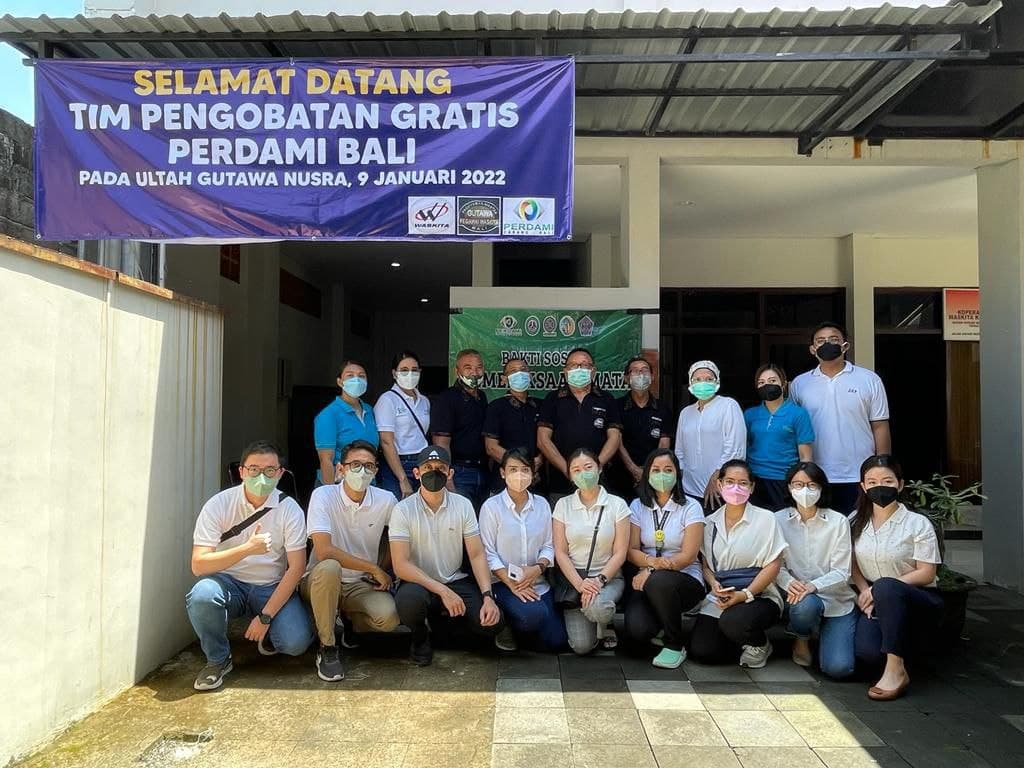

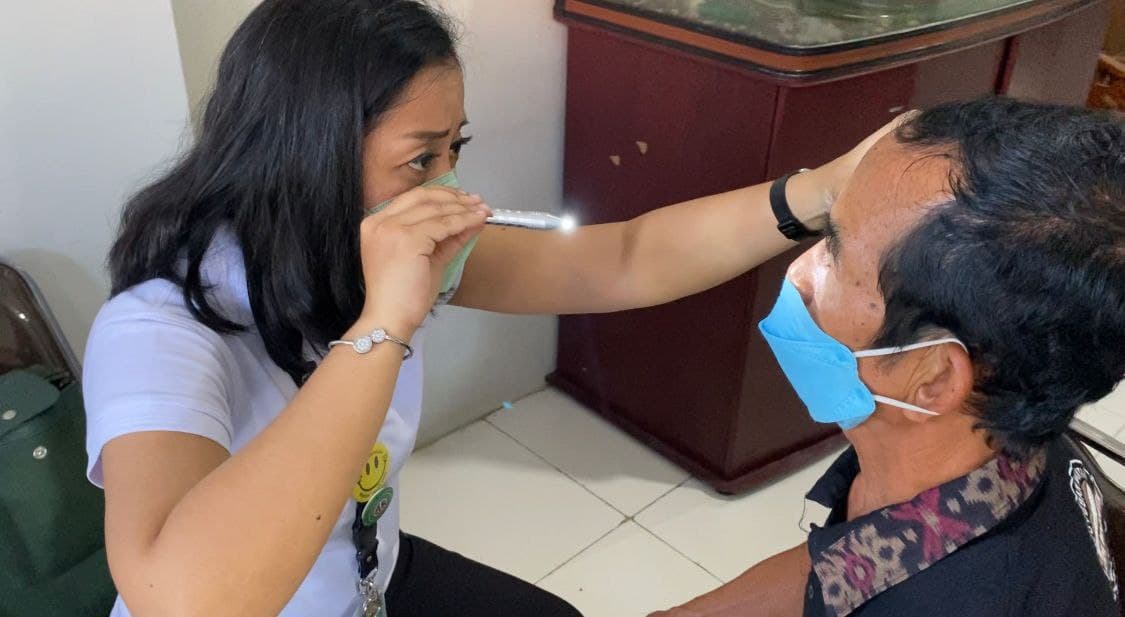


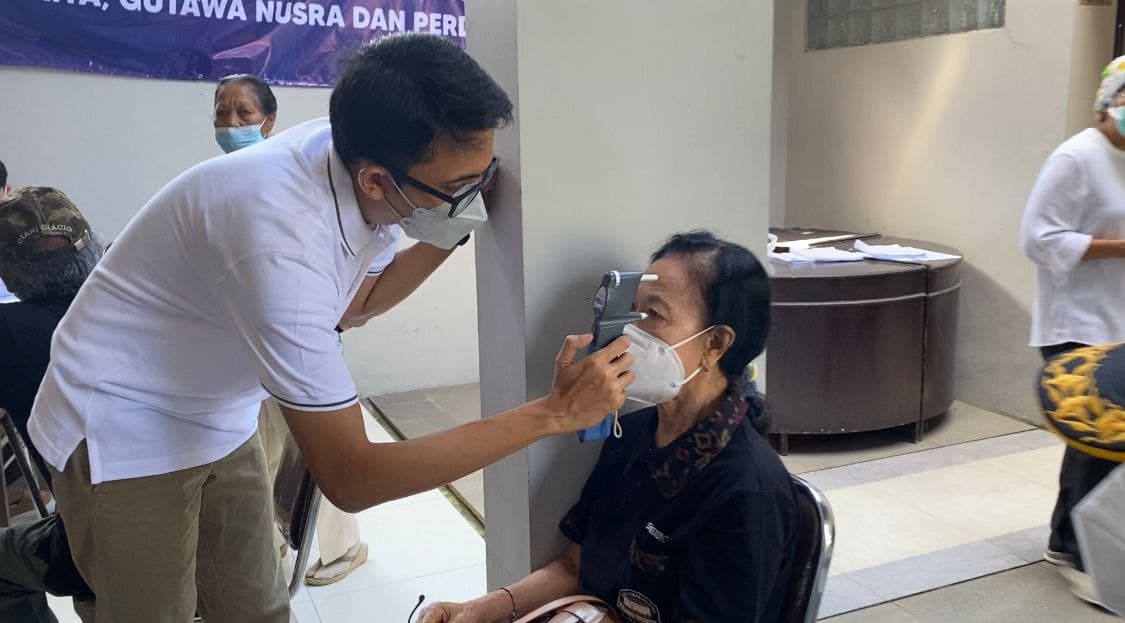
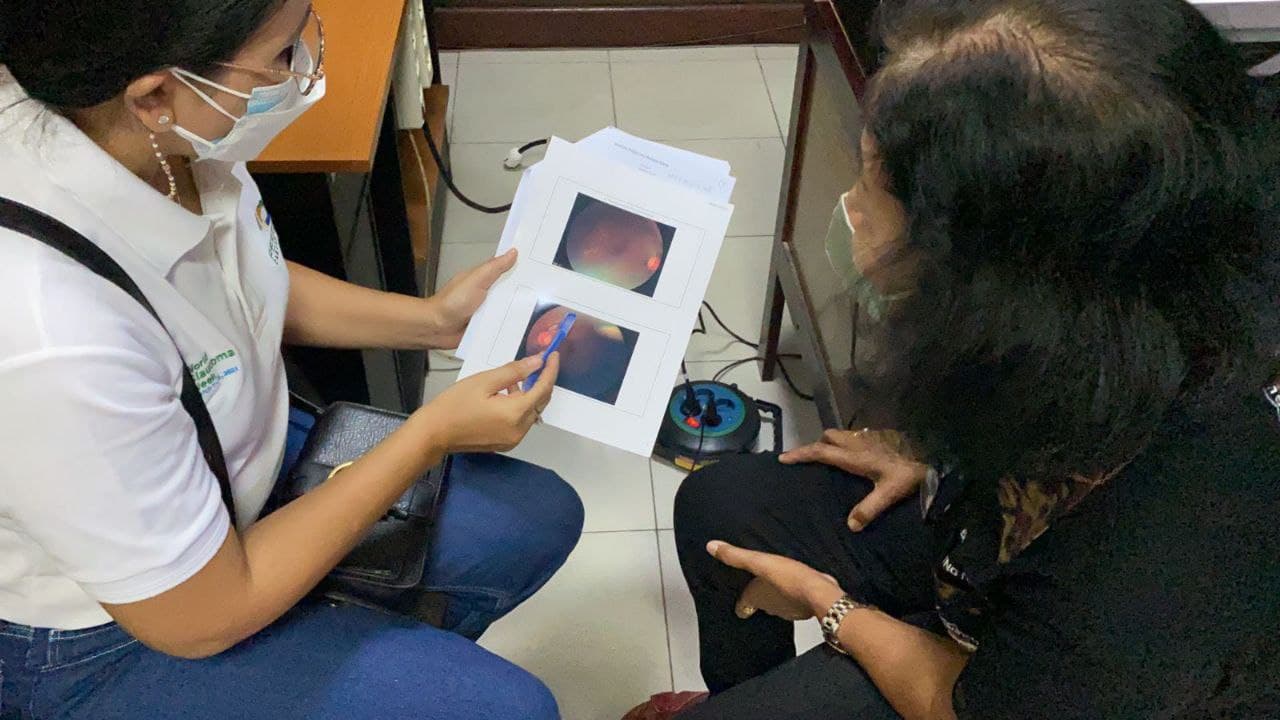
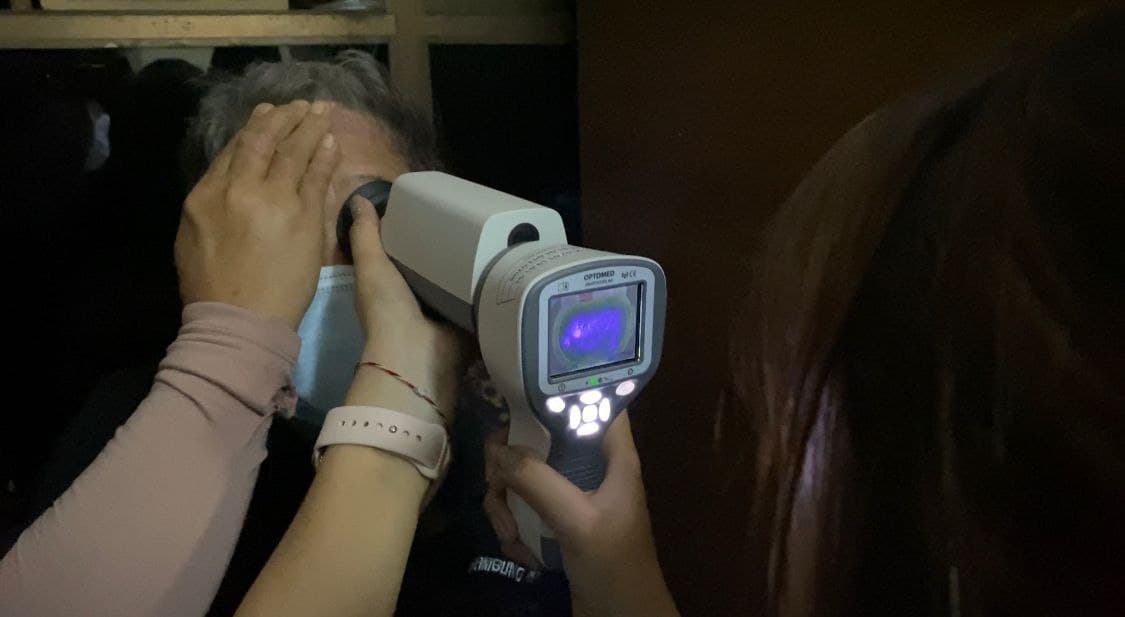
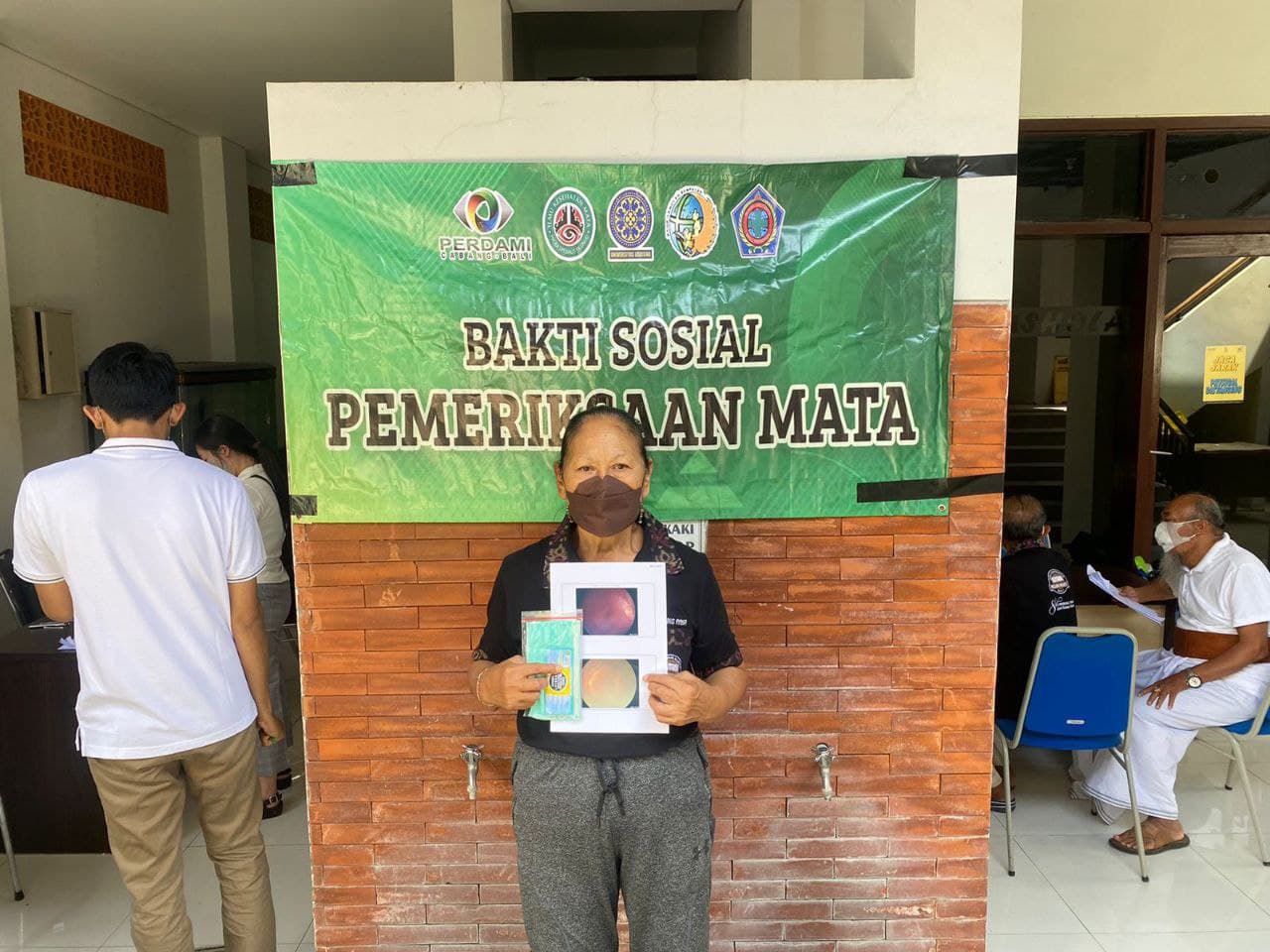




FACULTY OF MEDICINE, UDAYANA UNIVERSITY